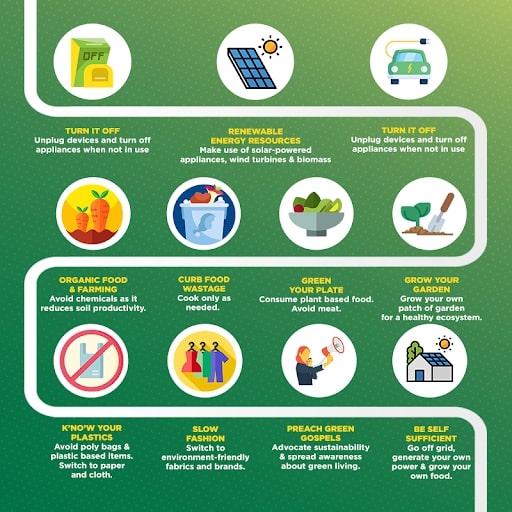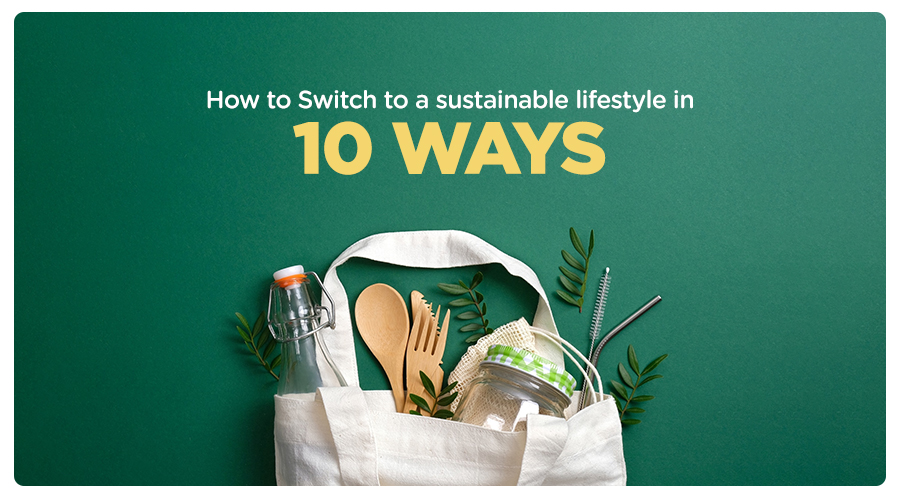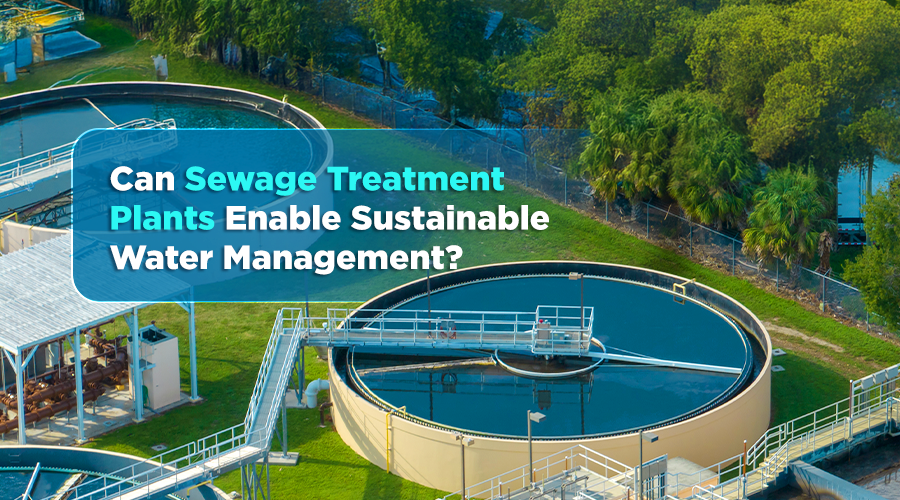Do you want to create a difference and make this world a better place? Or maybe you are looking for a lifestyle change. For all those frantically searching for ways on “How to live sustainably?” making changes & switching lifestyles might seem daunting at first. But on the bright side, there is plenty of information and various methods that will help you undergo a smoother transition to sustainable living.
The two things that immediately come to mind when we talk about sustainable lifestyle are – plant more trees & ditch plastic. But in reality, there is much more to it. One can take small steps & bring tiny changes in everyday life to make a more considerable difference to the planet.
Before you read on to find ten ways to live a sustainable life, let us understand what exactly it means.
Sustainability In A Nutshell:
The most common definition of sustainable development, we can go by, is by the UN: “Sustainable development is a development that meets the needs of the present without compromising the ability of the future generations to meet their own needs.” In other words, it is the practice of using our finite resources judiciously, keeping in mind the long term priorities and consequences. But why does it matter? Because it is essential to ensure that the world we leave for the future generations is the one they can easily survive in.
Hence, a sustainable lifestyle is a set of practices that aims to minimize personal and societal environmental impact by creating positive changes which counteract or fix climate change and other ecological concerns. To put it simply, it is all about reducing one’s carbon footprint. The primary intent is to achieve environmental equilibrium in more complex terms, also referred to as net-zero living or zero energy balance. The takeaway here is that we return to Earth as much as we take from it.

10 Ways to Living a Sustainable Lifestyle:
Do not feel guilty if you are not perfectly sustainable. To help you better, we have listed some of the most impactful practices that you can follow to develop a sustainable lifestyle.
- Turn It Off: As per Statista, electricity consumption has increased threefold since 2000 and per capita consumption amounted to 206.7 kilowatt-hours in 2016 which is a clear sign of development. However, the rise in consumption has a downside to it. As per report, on an average 5% of electricity consumed every month goes as ‘phantom load’. When you are not using something, switch it off. Do not leave the electrical appliances and electricity on standby. Replace your traditional incandescent light bulbs with CFLs & LEDs as they use 75%- 80% less electricity & last 3 to 25 times longer than conventional bulbs. Make it a point to purchase energy-efficient products. It is time we practice the ethics of Digital Sustainability by ensuring to unplug devices from charge, turn off laptops, and avoid leaving devices on sleep mode. By following these little habits, you can save utility bills, limit GHG emissions & enjoy all the perks of being energy efficient.
- Renewable Energy: Renewable energy is a way to sustainability as it uses naturally replenishing sources to create power that won’t run out as it is constantly being replaced. Common fossil fuels like natural gas, crude oil & coal are indeed held within Earth’s crust in large quantities. But these resources take millions of years to form, and looking at the exponentially rising population, non-renewable energy resources look remarkably insufficient. Moreover, its extraction is rather detrimental for the Earth, as the process becomes a source of toxic emissions. It is best to switch to renewable energy sources such as sunlight, wind, biogas, etc. Using solar panels & solar-powered appliances, hydroelectricity, wind turbines & biomass are few ways to rely on.
- Rethinking Modes Of Transportation: Walking, using stairs, riding bicycles are few sustainable ways to commute as they generate zero GreenHouse gases & also help improve your health. If you need to get somewhere close by, it is best to walk or cycle. Different modes of public transport such as carpooling, buses, metros, etc. are ideal for long distance travel. A sustainable lifestyle includes cutting down on fossil fuels, and that means minimizing the use of cars. Alternatively, you could invest in a fuel-efficient, hybrid, or electric vehicle.
- Organic and Regenerative Farming: Inorganic farming is the most significant contributor to biodiversity loss in the soil as it relies on chemicals, fertilizers and monoculture methods, leading to soil degradation, pollution & harmful impact on economic & social pillars of sustainable development. And this is why we must switch to organic farming; it employs methods to protect soil diversity and maintain nutrient cycles. Organic food thus grown is free of harmful chemicals and pesticides. It is better for nature and you as well. Regenerative farming uses organic methods that restore carbon and health to the soil, which is a great way to increase productivity of top soil.
- Curbing Food Wastage: As per the FAO report, the global volume of food waste accounts for 1.3 – 1.6 billion tonnes, responsible for 3.3 billion tonnes of CO2 equivalent of GHG released into the atmosphere per year. In this, India alone contributes 67 million tonnes of food waste per year. Food wastage is directly proportional to a negative impact on the environment as a considerable amount of energy is invested in production and transportation. Another downside of food wastage is that it ends up in landfills, becoming the primary methane gas production source. This issue, however, can be easily solved if one chooses to stay conscious. At home, we can save food with better planning, preserving and freezing food, and finding creative ways of using food scraps, such as composting and growing your garden. If possible, buy the items or things close to expiry so that they don’t clog up a landfill.
- Green Your Plate: Compared to an animal-rich diet, a plant-based diet is more sustainable as it uses fewer natural resources and is good for the health as well. Meat and the meat industry are two of the most significant contributors to environmental distress. They demand greater energy input like water, fuel, electricity for freezing and storing and contribute to biodiversity loss. On the other hand, a plant-based diet helps tackle the climate crisis, improves health and prevents diseases (ahem..if you know what we are talking about).
- Grow Your Garden: Did you ever try growing your fruit or nurturing a veggie patch in your garden or balcony? If not, then this is the best time to put those green fingers to good use. Growing your plants not only is therapeutic but also improves ecosystem & biodiversity. Using organic methods to grow your food makes urban spaces green and decreases carbon. It also keeps the demand and supply of the local produce in check to avoid wastage. Even if you do not have enough room for your garden, find a sunlit corner in your house for some indoor plants!
- K’NO’w Your Plastics: Think about the last time you went to a beach, now recall the amount of plastic debris you spotted while enjoying your vacation. Concerning, isn’t it? Since school days, we have been learning how plastics are hazardous for the environment & animals because of their non-biodegradable nature. They remain in our soil for thousands and thousands of years without breaking down, which pollutes the waterways and soil; and mixes with food waste and becomes fodder to the animals. Plastics do not just include polybags and water bottles but also straws & cutleries. It is high time we switch to alternatives such as jute, glass, ceramics, recycled paper, etc. After all, a sustainable lifestyle is all about using biodegradable materials.
- A Conscious Wardrobe: Owning a conscious wardrobe is an integral part of being sustainable. Ethical & Slow Fashion are now the buzzwords in the fashion industry where people are opting for sustainable fabrics like linen, hemp and organic cotton as they have lesser negative impact on our environment and are durable in nature. Avoid synthetic fabrics like polyester and nylon and check labels before committing yourself to a particular brand.
- Preach Green Gospels: It is important that we all use our voices directly or indirectly by raising awareness and taking a stand for change or ensuring that you spend your money on the things that count and matter the most. In whatever capacity possible, you raise these issues at the political level as well. However, there is a thin line between spreading awareness & proselytizing, so be more compassionate & start by introducing the idea to your family & friends. This way you will understand the barriers from different perspectives, which will help you broaden your definition of sustainability.
Bonus Tip:
- Be Self Sufficient: At one end of sustainability, we have self-sufficiency which involves off-grid living or living in a decentralized self-sustaining home without fossil fuels or to mainstream non-renewable energy sources. People harness renewable energy and use naturally collected rainwater, compost toilets, and wood-burning heat. When you grow your food, generate your energy and be your own repair person, the cost of living largely disappears. The journey to self-reliance begins with one becoming frugal and investing in necessary items and services.
The Bottomline:
It is not enough for us to recycle. We need to change deep-rooted practices to undo years and years of destructive patterns that came about through over-consumption. A sustainable lifestyle must consider various aspects such as eating, transportation, socialization, energy use, waste disposal, etc., as a complete transformation and resurgence in our lifestyles. We cannot compromise the future generations’ ability to meet their own needs. Hence, we need to develop a lifestyle that ensures the most negligible impact and least waste. It must be done in a way that no cumulative damage occurs to any living things.
Sustainability is more than just an environmental issue; it is also an economic issue and is critical in alleviating poverty worldwide. One-fifth of the entire population of Earth has access to the majority of the planet’s ecological resources. The privileged have access to almost all of the planet’s economic resources that include education and healthcare. In retrospect, we can observe that sixty per cent of the global south does not have access to even the basic sanitation facilities, and 25% have no adequate housing or accommodation.
There needs to be a change in living standards, else those living in the developing nations will forever be plagued by poverty and malnourishment while their populations keep growing. It is the responsibility for each one of us to leave this world in the best possible way for the future generations to come. In addition, sustainability allows us to indulge in activities that make us feel good. Perhaps, that is the most important reason to go sustainable.





